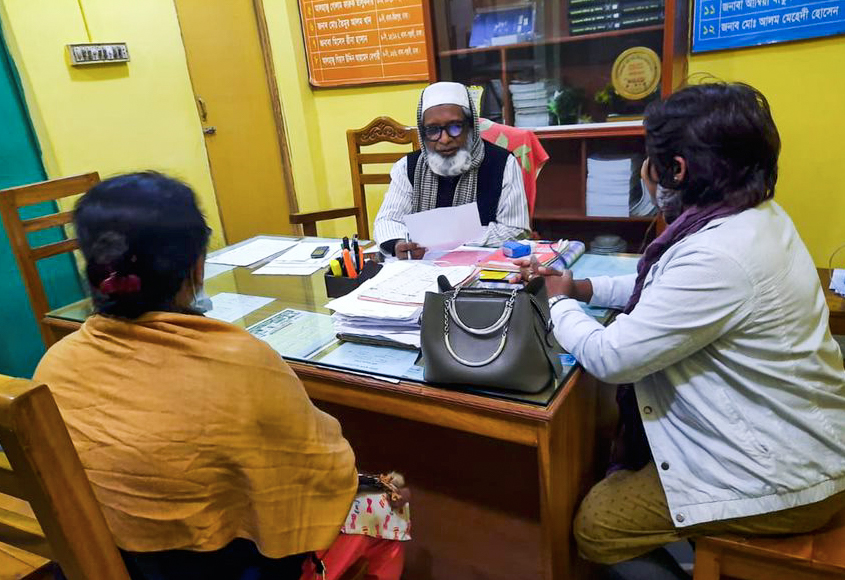What we do for parents
Family and community perception of education is key, so we also educate mothers through literacy classes and awareness programs on health and social issues (hygiene and health care, human rights, domestic violence, early marriage).
Literacy courses for mothers of children
In Bangladesh, more than a quarter of women still cannot read and write. And what kind of life do they have? Illiterate women, often mothers of several children, find it difficult to find work and often end up in undignified conditions. Chalantika focuses on this issue, organising literacy courses for them. Program Manager Liza says, "Such a basic thing, whether a mom can read and write, affects not only her employment, but more importantly, her children's education and employment." For them, it's hope for a way out of the slums. The classes also teach mothers to cook according to basic hygiene standards so that they prepare not only tasty but also safe food for their children. To offer the most individual approach in the courses, they are conducted in five groups, each learning two hours a week.
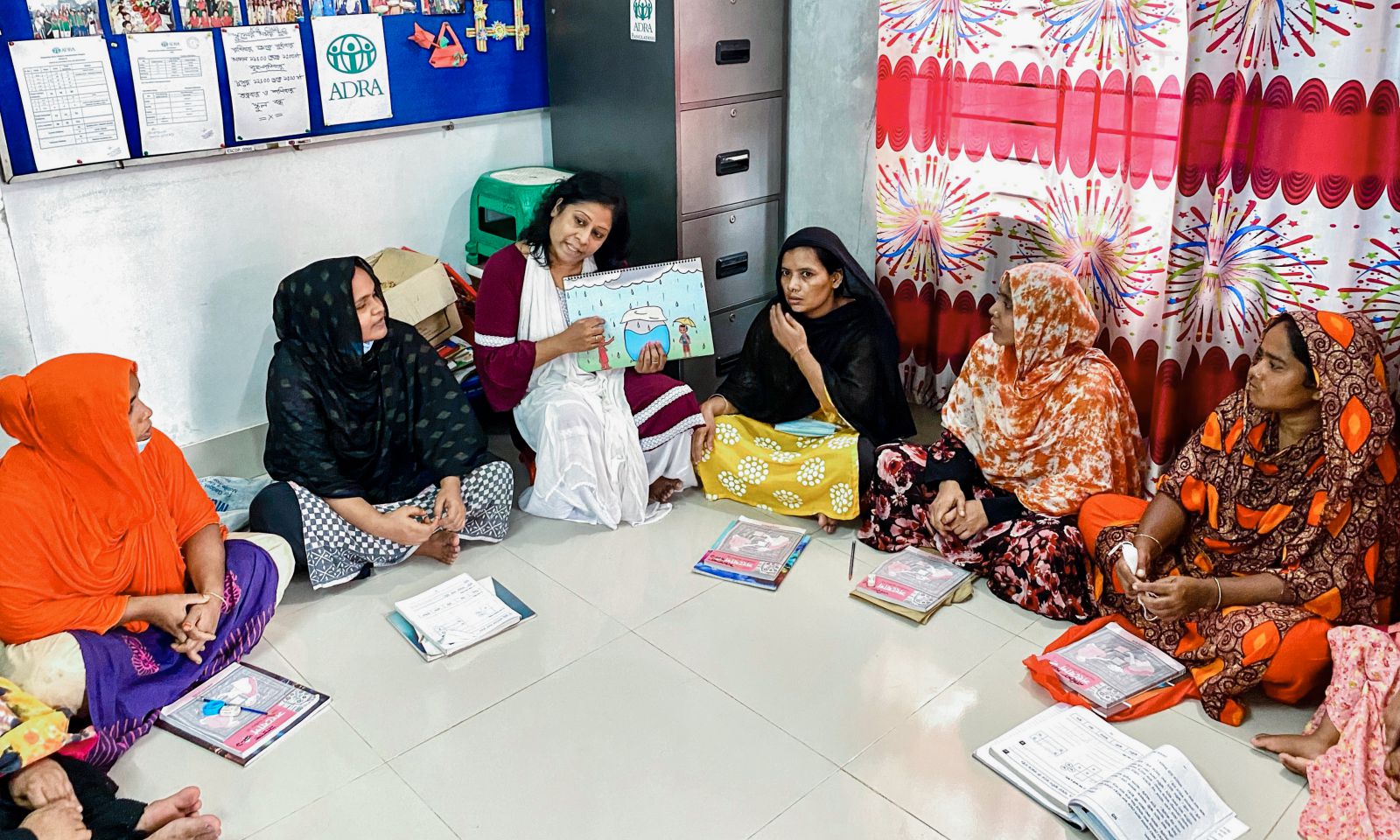
Seminars on health issues
In Bangladeshi culture, the responsibility for childcare still rests on the shoulders of women. Therefore, in addition to strengthening their role in society, it is important to make their care of the household and children as easy as possible. Because they are often illiterate and lack knowledge about health care, personal hygiene or skilled health care, they are more likely to believe superstitions and may unknowingly harm their children in good faith. Our staff impart key knowledge to parents that is otherwise difficult to obtain in a slum environment. They also disseminate information about some of the services available to families from government and non-government organisations.
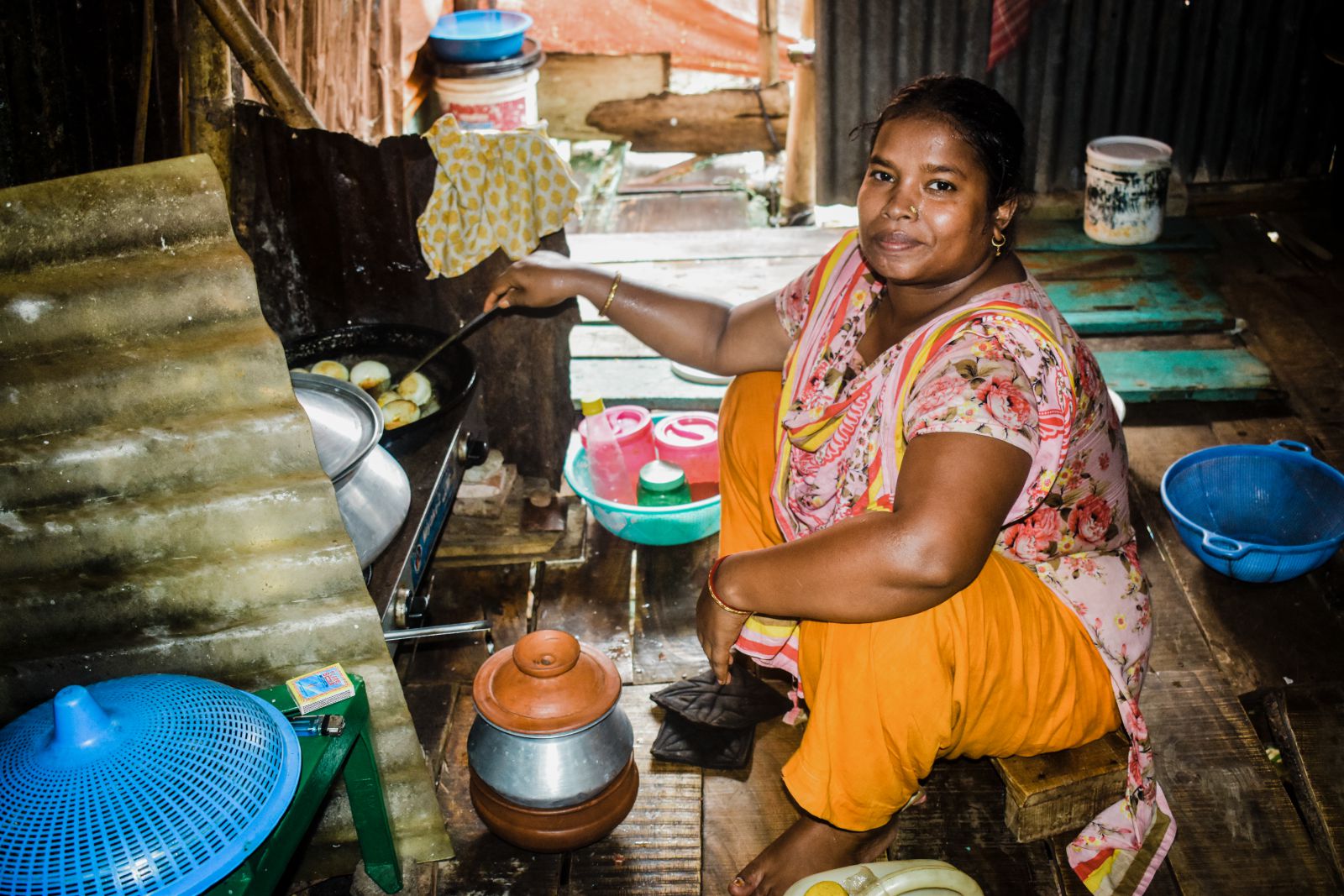
Workshops on social issues
Twice a year, parents of children participate in thematic workshops, which play a key role in spreading awareness about social issues. They contribute to mitigating the impact of social problems in the slum. We discuss child labour, child marriage, domestic violence, women's and children's rights. The last mentioned topic was the subject of the June workshop.
In the framework of the project we support not only a gradual change in the attitudes of adults, but also the awareness of children about their own rights and possibilities. We try to reduce the taboo of certain topics by promoting public debate.
Mrs Taslima told us, "I used to physically punish my son and scold him whenever he did something wrong. I thought he would grow up to be a better person. After the lecture, I know that this is not what proper upbringing looks like. I won't hit my son anymore."
Mrs. Shirin says, "I used to think that adults didn't need to listen to children, I didn't care what they thought. But today I learned that children have the right to express themselves just like we do. It's not good to ignore them."
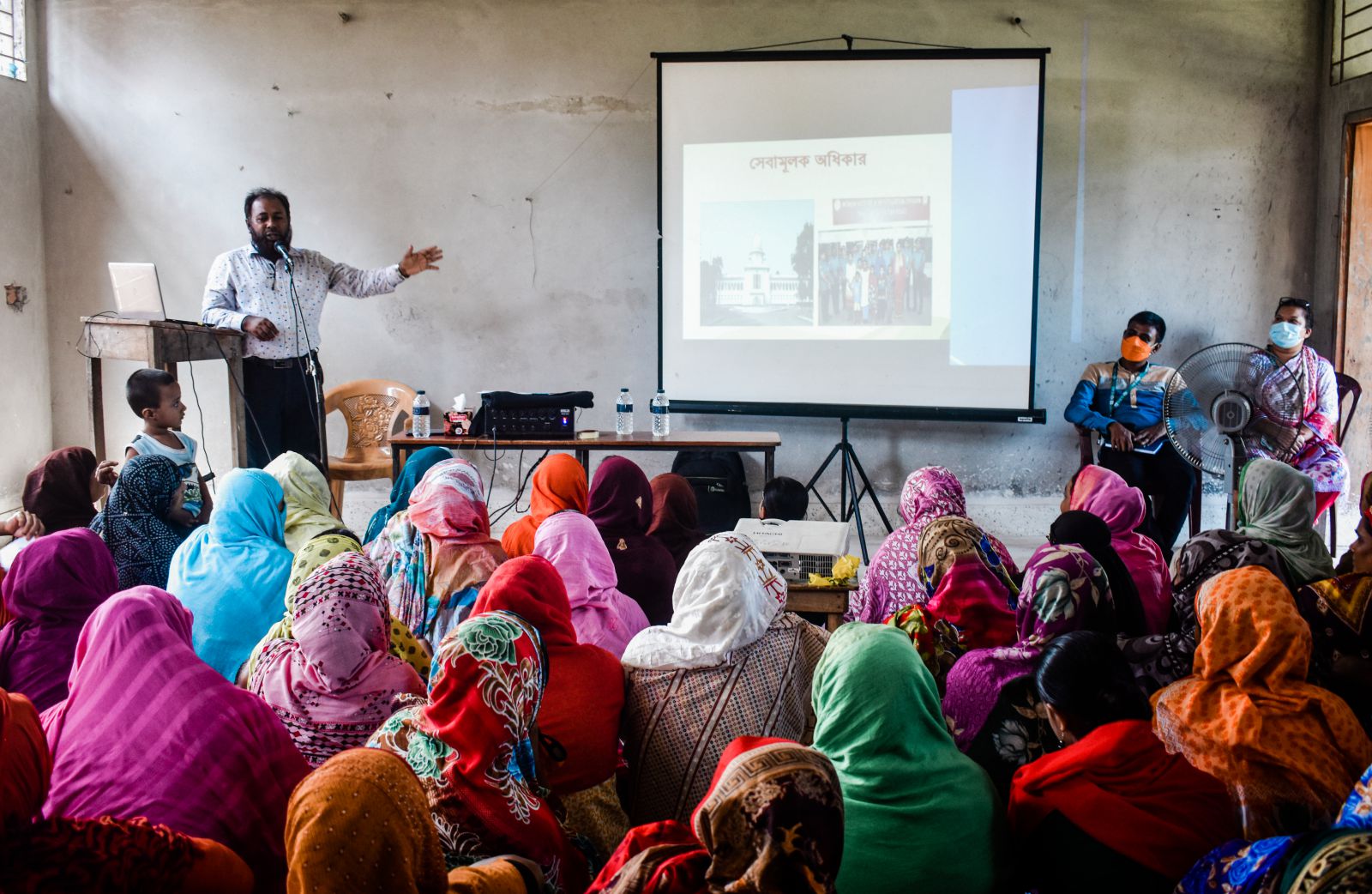
Parents´ discussion meetings
Parents of all 121 supported children meet three times a year in groups at the Chalantika Centre to share their needs, thoughts and ideas and provide feedback to the project. They have the opportunity to discuss with the centre staff the daily challenges, but also the progress of their children and the benefits of Chalantika for them and the whole family.
These meetings give families the opportunity to participate in shaping the project to respond to what they really need and promote positive change in their lives.
In addition to direct activities in Chalantika, we also seek good relationships with local stakeholders - Bangladeshi authorities and partner organisations. Their support is important for the sustainability of the project now and in the future.
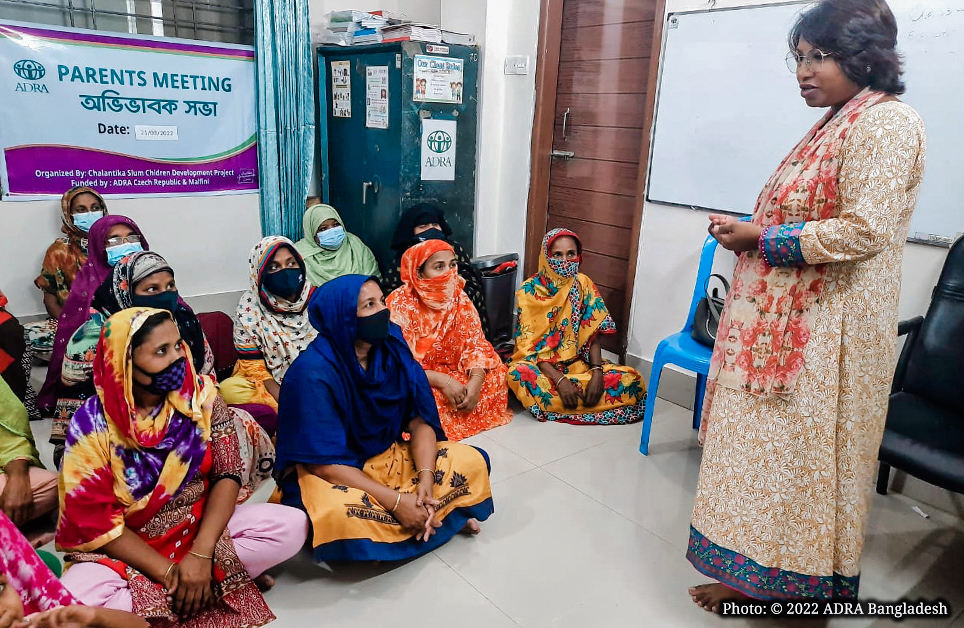
Other activities
Every month, we meet with representatives of the primary schools where the children we support study, as well as with the staff of the secondary school where the students continue after completing their primary education. In this way, we are able to provide children with better preparation for the entrance exams based on the curriculum of each school. We also individually discuss the progress and room for improvement of each child involved. This also motivates the teachers to take more individual interest in the children.
We also work with representatives of local governments in the field of education and coordinate activities with other non-profit organisations in the field of education.
